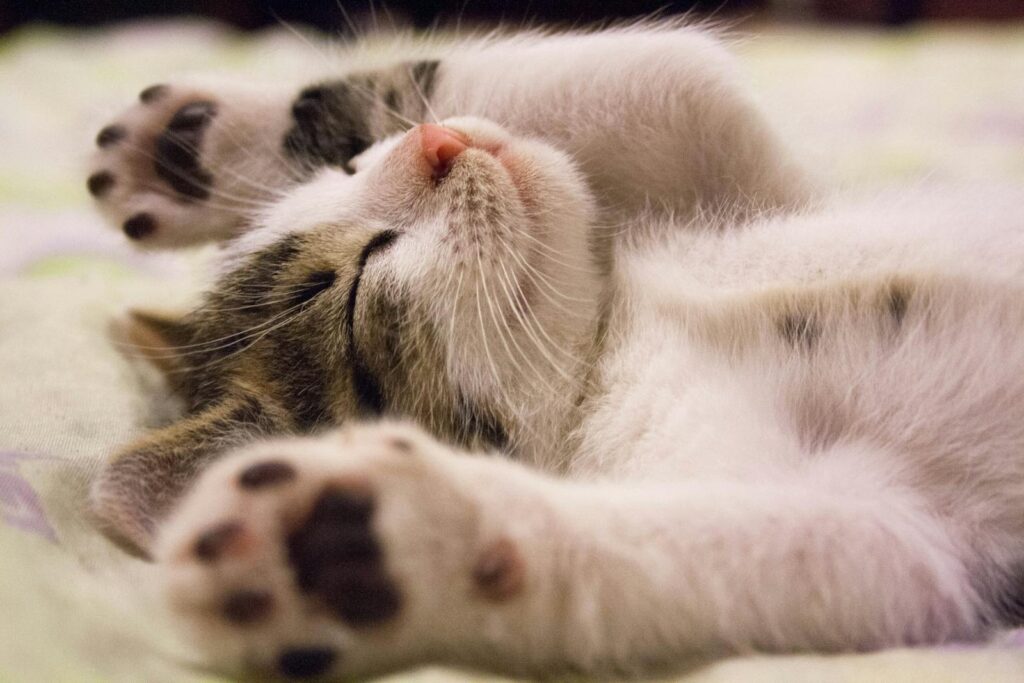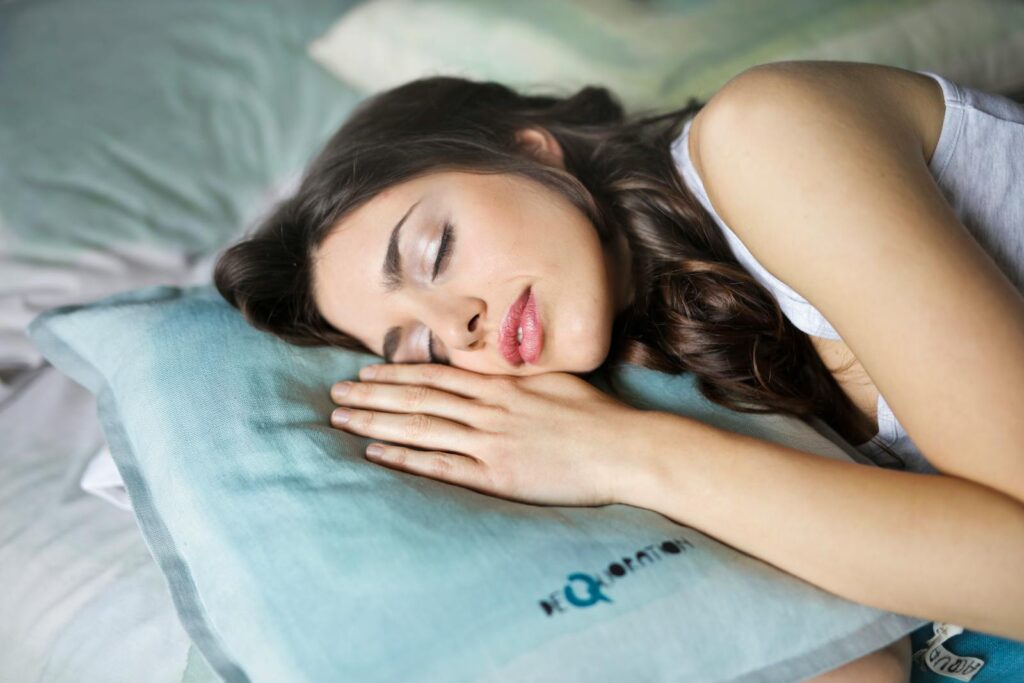
How much do you know about sleep? It’s essential for everything our bodies do, from brain function to immune support. Yet, most of us are flying blind. Rebecca Robbins, a sleep scientist at Brigham and Women’s Hospital, points out that while we learn about nutrition or ed in school, sleep education is often left out. No wonder only a third of Americans get the recommended amount of shut-eye each night!
Because we’re not exactly sleep gurus from birth, a whole bunch of myths and misconceptions have popped up over the years, making it even harder to catch those Zs effectively. From thinking you can ‘bank’ sleep to believing that being a ‘fast sleeper’ is a superpower, these tall tales are definitely messing with our precious rest. But don’t you worry, because we’re here to spill the tea on some of the most popular sleep myths out there, all backed by science and the experts!
Get ready to have your sleep world turned upside down, as we dive into 15 common beliefs about sleep that are actually doing more harm than good. It’s time to separate fact from fiction and empower you with the real deal so you can start fostering healthier sleep habits and finally get the restorative rest you deserve. Let’s kick off!
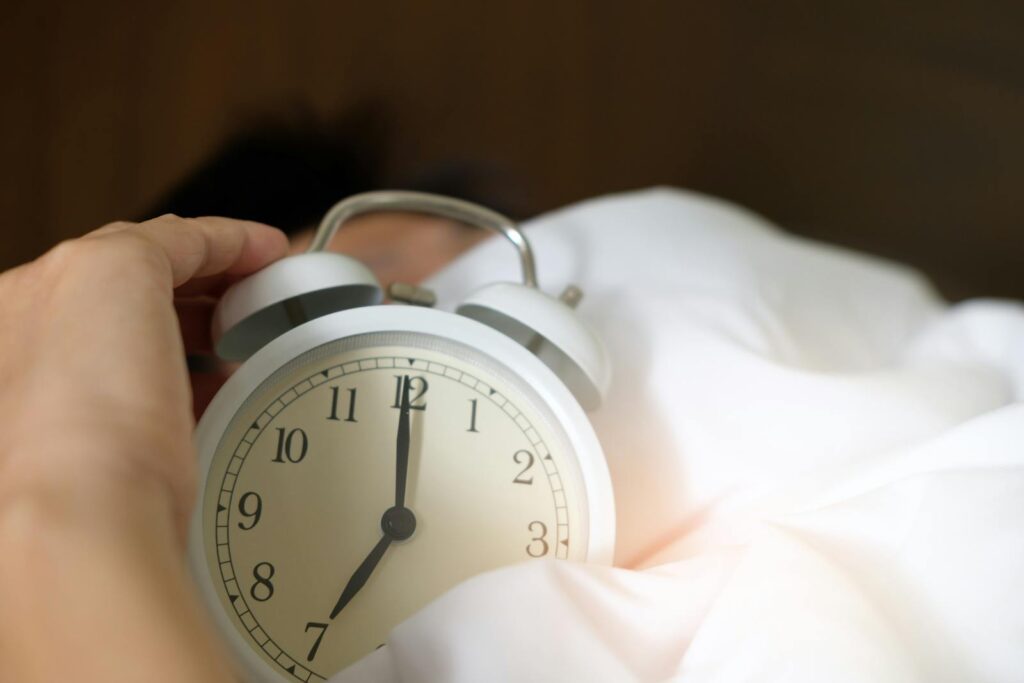
1. **Myth: It doesn’t matter what time of day you sleep.**This is a common one, especially for those of us with unpredictable schedules, but guess what? The time of day you hit the hay *does* matter big time! Rebecca Robbins, a sleep scientist, confirms this, explaining that our internal circadian rhythm—which guides the essential sleep hormone melatonin—is “significantly influenced by natural sunlight in our environment.” It’s not just about getting hours in, it’s about *when* those hours happen.
When the sun comes up, that sunshine acts like a switch, effectively stopping “the floodgates of melatonin and switches the ‘on’ phase of our circadian rhythm.” Conversely, dimming the lights and creating a dark environment signals your body to start producing melatonin, preparing you for sleep. This delicate balance is crucial for optimal sleep and overall well-being. Individuals who frequently work overnight schedules or outside the typical 9 to 5 p.m. window often face more health challenges. A 2011 study published in the journal *Occupational Medicine* found that doctors and nurses on these shifts experienced a higher likelihood of negative health outcomes like diabetes and breast cancer.
If you’re a shift worker, don’t despair! Robbins suggests you can still achieve good, health-supporting sleep by being “very diligent about the exposure they get to natural sunlight.” This means actively avoiding sunlight as your shift ends, rocking sunglasses on your drive home to shield your eyes from the morning glow, and making sure your bedroom is a super dark sanctuary with thick blackout curtains. It’s all about working with your body’s natural clock, not against it.
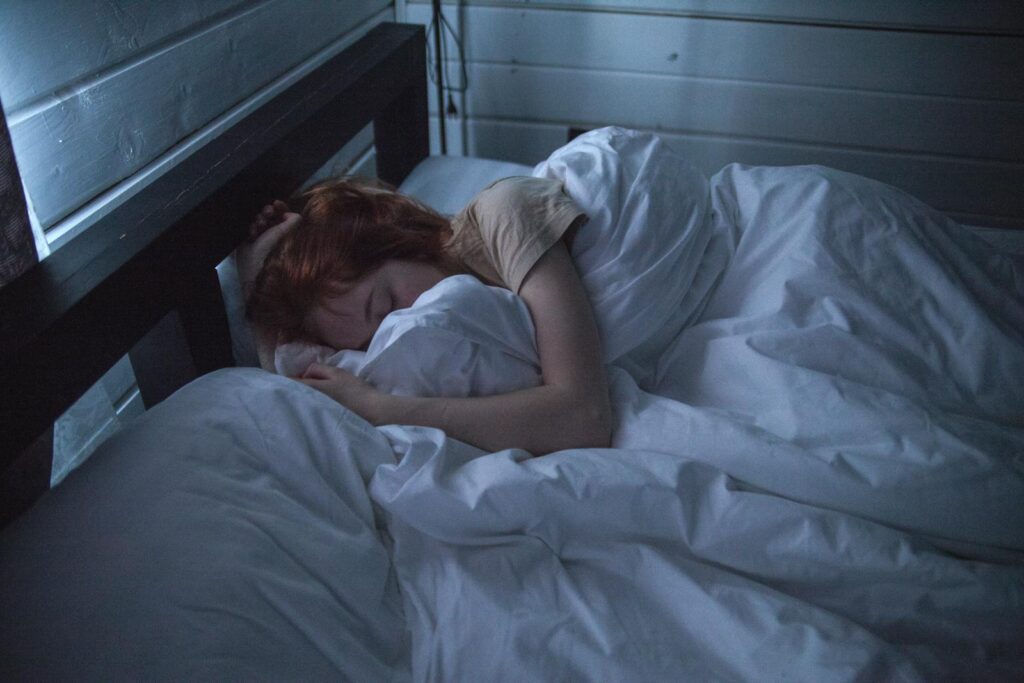
2. **Myth: One night of sleep deprivation will have lasting effects.**We’ve all been there: a late-night project, an exciting event, or just a bad bout of insomnia. The next morning, you feel like a zombie, and the panic sets in – “Oh no, my sleep is ruined forever!” But here’s some good news: your sleep isn’t going to be perfect every single night, and that’s okay, says Robbins. “Every now and then, we might struggle. If we experience some stress during the day, our sleep suffers that night.”
While it’s true that a significant lack of sleep, like being awake for at least 24 hours, can lead to immediate short-term issues such as lapses in attention or a temporary increase in resting blood pressure, these effects are usually just that – short-term. Robbins and her colleagues noted in their research paper that these adverse effects “likely resolve with recovery sleep.”
What does that mean for you? If you have one “off” night, don’t spiral into self-recrimination. The key is not to dwell on it but to simply “try to get back on track with your normal sleep schedule.” Your body is pretty resilient, and it knows how to bounce back. So, take a deep breath, and focus on getting back to your routine.

3. **Myth: Being able to fall asleep anytime, anywhere is a good thing.**Picture this: you hit the pillow, and BAM! You’re out cold in seconds. Many people might secretly (or not so secretly) pride themselves on this ability, thinking it’s a sign of a truly great sleeper. Well, prepare for a plot twist, because Rebecca Robbins says, “It’s a myth that a good sleeper would be able to hit the pillow and fall asleep right away.” Why isn’t it good? Because sleep isn’t an “on-off” switch; it’s a gradual “process.” A genuinely well-rested and healthy individual typically takes about 15 to 20 minutes, or even a little longer, to drift off to dreamland. That short window is your body’s natural transition period.
If you find yourself nodding off almost instantly, it’s often a big red flag for “a chronically sleep-deprived state,” as explained by Robbins and her colleagues. They use a fantastic analogy: “If you were starved for food and sat down at any opportunity to eat a huge meal and ate voraciously, that would probably be a sign you’re not getting enough nutrition. It’s the same thing with sleep.” Your body is so desperate for rest that it’s seizing the first opportunity to get it.
Falling asleep super fast means your body is essentially playing catch-up, and you’re likely not getting enough sleep on a consistent basis. If this sounds like you, it might be time to reassess your sleep habits and prioritize consistent, adequate rest. If you’re also experiencing excessive daytime sleepiness or waking up tired after falling asleep quickly, it could even point to underlying health issues like sleep apnea or narcolepsy, and a chat with your doctor might be a good idea.
4. **Myth: You can survive on less than five hours of sleep.**We live in a go-go-go world, and sometimes it feels like bragging rights to say you only need a few hours of sleep at night. Some folks even think that “well-rested people are lazy,” according to Robbins, but that’s a total myth! The truth is, consistently skimping on sleep is not a badge of honor; it’s a recipe for serious health trouble.
The reality is that for most adults, the sweet spot for sleep is “about seven to nine hours of sleep a night,” Robbins emphasizes. This isn’t just a random number; it’s where we observe the “most optimal health [outcomes],” including improved heart health, greater longevity, and better brain health as we age. It’s the foundation for a vibrant, healthy life.
Falling short of this seven-hour minimum can have a cascade of negative effects on your body and mind. The American Academy of Sleep Medicine and the Sleep Research Society have clearly stated that sleeping less than seven hours a night is linked to weight gain, obesity, diabetes, and hypertension. It’s also associated with impaired immune function, meaning you’re more susceptible to getting sick. Beyond physical health, chronic sleep deprivation messes with your daily performance. Robbins points out it can lead to “impaired performance and increased errors — like ‘sending an email to the wrong person or entering incorrect numbers in a spreadsheet.'” So if you can, try to hit that goal of sleeping seven to nine hours as many nights of the week as possible. You’ll know that you’ve hit your sweet spot when you “wake up feeling refreshed, have energy throughout the day and are not reaching for coffee or energy drinks in the afternoon.”
5. **Myth: Watching TV is a good way to relax before bedtime.**Ah, the classic wind-down ritual: curling up in bed with your favorite show. It feels relaxing, right? But hold up, because Rebecca Robbins has some less-than-stellar news for this habit. “You’re starting to associate your bed with things other than sleep,” she warns, and that’s not ideal for training your brain to see your bed as a sleep-only zone.
Beyond the association issue, there’s the physical aspect. If you’re watching a show on a device that emits heat, like a laptop positioned on your stomach, you’re inadvertently raising your body temperature. This is a big no-no for sleep, as Robbins explains, “Keep the body cool as you approach bedtime.” Your bedroom should ideally be under 70 degrees Fahrenheit, because hotter temperatures can lead to uncomfortable “tossing and turning, sleep disruption and more nightmares.”
And let’s not forget the content itself. Binge-watching an intense drama or catching up on the nightly news, especially upsetting programs, can actually cause your stress hormone, cortisol, to spike. This burst of adrenaline is exactly the opposite of what you need when you’re trying to “hinder your ability to power down,” as Robbins puts it. Now, here’s a small caveat from Robbins: if watching “20 or 30 minutes of a comforting TV show like Friends or Seinfeld” is a beloved, effective part of *your* personal sleep routine and genuinely helps you relax, then “carry on.” Her advice is, “If your sleep routine ‘isn’t broken, don’t worry about fixing it.'” But for most, especially if sleep is a struggle, it’s worth considering moving the screen time out of the bedroom.
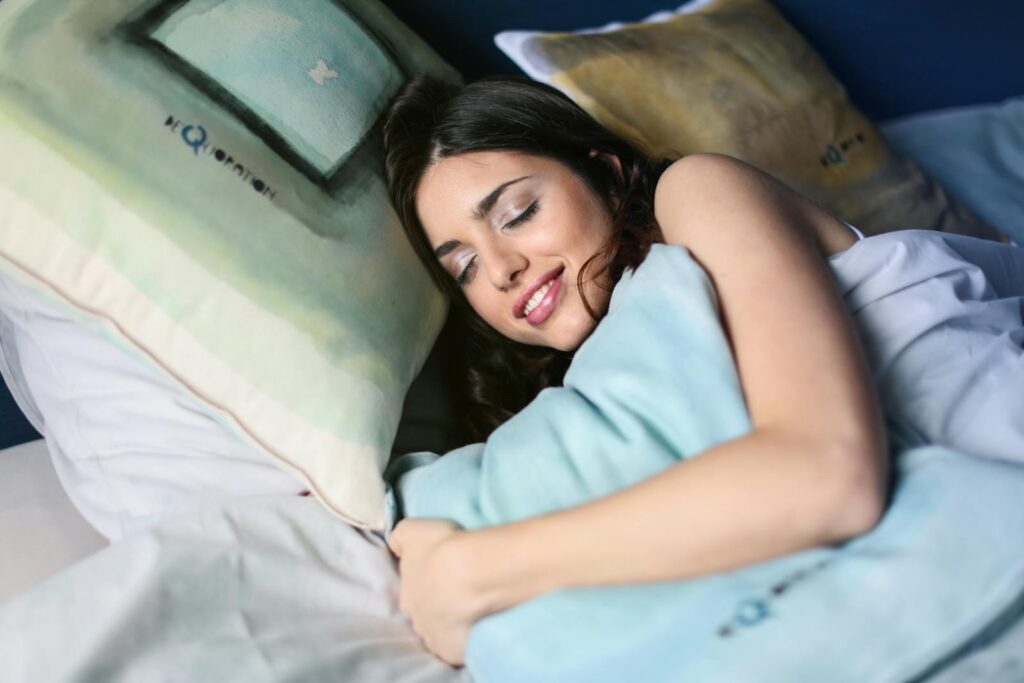
6. **Myth: Exercising within four hours of bedtime will disturb your sleep.**For many years, sleep experts told people to “avoid exercise close to bedtime,” says Robbins, because it can raise body temperature, heart rate, and adrenaline levels, potentially leading to poor sleep. “But we actually don’t have any good data to back that up.”
What the research does show is that exercise and sleep appear “mutually beneficial,” wrote Robbins and her colleagues in their paper. One analysis of several research papers found that people who consistently exercised saw “small to moderate improvements in sleep.”
“Exercise releases endorphins, which are mood elevators that can help with the No. 1 cause of sleep difficulties: stress,” she explains. For that reason, Robbins encourages people to exercise—even if it’s close to bedtime. “If that’s the only time you can get a workout in, go for it.” Don’t let fear of “too close to bedtime” stop you from getting your workout in; prioritize moving your body, and your sleep will likely thank you for it, regardless of the clock.
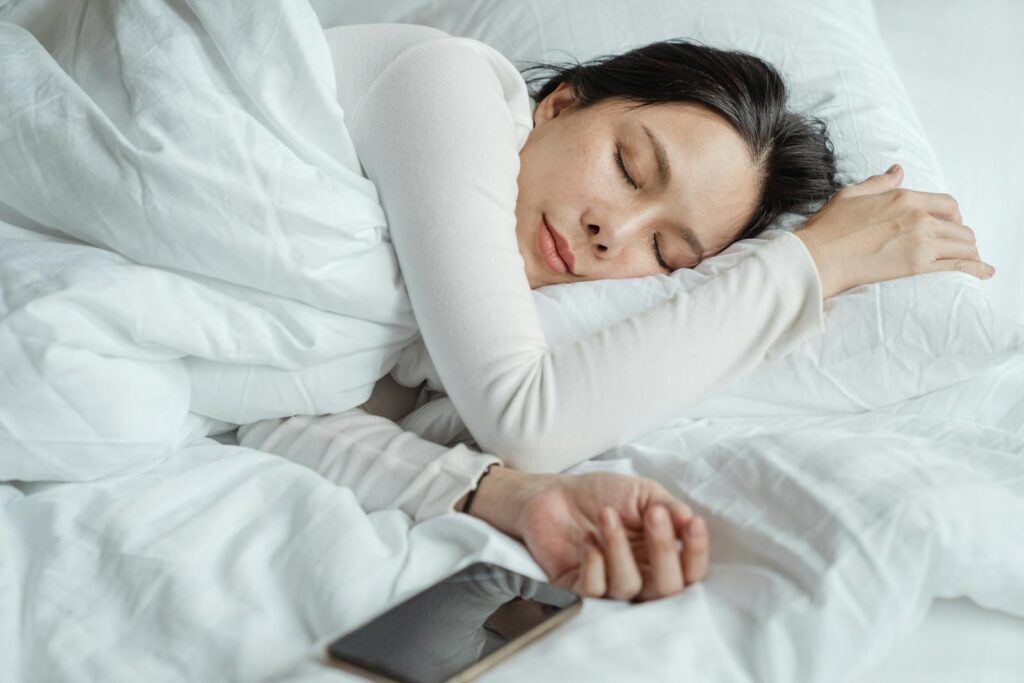
7. **Myth: Weekends are for Catching Up on Sleep.**Ah, the weekend lie-in! It feels like a well-deserved reward after a grueling week of early mornings and late nights. Many of us operate under the assumption that we can just “catch up” on all those lost hours by sleeping in on Saturday and Sunday. Unfortunately, this popular belief is, in fact, false, and it’s a sleep myth that needs to be permanently retired from your routine.
According to a Better Sleep Council survey, a whopping 43% of American adults think they can repay their “sleep debt” by snoozing more on the weekend. But here’s the harsh truth: “you can’t repay sleep debt by snoozing more on the weekend.” When we consistently don’t get enough sleep during the week, we build up this sleep debt, which seriously impacts mood, memory, focus, and even our immune system.
While that long lie-in might offer “short-term drowsiness” relief, it “doesn’t erase the damage caused by sleep deprivation.” More critically, this on-again, off-again sleep schedule messes with your body’s natural internal clock, or circadian rhythm. Maryanne Taylor, a certified sleep consultant, warns that it’s “a bit like giving yourself jet lag every time you try to ‘catch up,'” making it even harder to fall asleep at the right time when your usual routine kicks back in.
Instead of trying to “bank” sleep or repay an unpayable debt, consistency is the ultimate goal. Experts recommend sticking to a regular sleep schedule, “or as close as possible, even on weekends.” This helps regulate your body clock, making it easier to fall asleep, stay asleep, and wake up feeling genuinely refreshed and ready to tackle your day. Make sleep a priority every day, not just a weekend luxury!
Alright, buckle up, sleep warriors! We’ve already crushed seven major sleep myths, and trust us, there are even more sneaky misconceptions out there messing with your precious rest. Get ready to dive deeper into the world of slumber, where we’ll expose more surprising truths about your bedroom environment, evening habits, and what your brain *really* does at night. It’s time to equip you with the knowledge to conquer those lingering sleep dilemmas and unlock the truly restorative sleep you deserve!
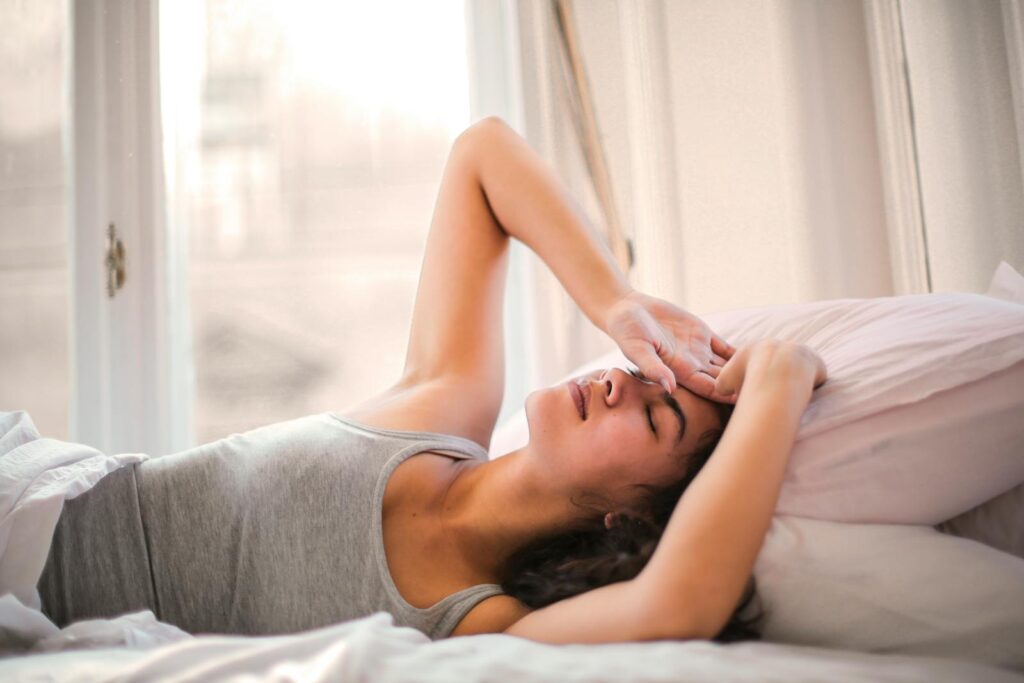
8. **Myth: You sleep better in a warm bedroom.**Hands up if you love to cozy up in a toasty warm room before bed! It feels comforting, right? Well, prepare for a chilly truth bomb! Psychotherapist Heather Darwell-Smith drops the news that “the idea that you sleep better in a warm room is a common misconception.” In reality, she explains, “a cooler sleeping environment is far better for high-quality sleep.” So, what’s the magic number? Research actually suggests the ideal bedroom temperature should be somewhere between a cool 16–18°C (60–65°F). Brrr-illiant, right?
Why the cold shoulder, you ask? It all comes down to your body’s amazing internal thermostat! Our sleep is intricately regulated by our core body temperature, which naturally dips in the evening as part of our body’s circadian rhythm. Think of it as your body preparing for its nightly cool-down. Sleeping in a warm room can totally throw a wrench in this natural cooling process, making it much harder for you to drift off and stay asleep.
And it gets even more serious. According to Darwell-Smith, studies have found that cranking up the heat in your bedroom can actually mess with your “slow-wave sleep (deep sleep) and REM sleep,” both of which are super important for things like cognitive function and physical recovery. Plus, “overheating at night has also been linked to increased night wakings, restlessness, and poor sleep efficiency.” So, next time you’re setting the thermostat, remember that a cooler room is your secret weapon for deeper, more restorative rest!

9. **Myth: Alcohol helps you sleep.**After a long day, a nightcap might seem like the perfect express train to dreamland. You feel drowsy, you fall asleep quicker, mission accomplished, right? Wrong! Heather Darwell-Smith, our sleep expert, is here to set the record straight: “While alcohol can make you feel drowsy, it does not improve sleep quality.” In fact, she boldly states, “it does the opposite.”
Here’s the lowdown: alcohol acts like a sedative, which is why you might nod off faster. It “reduces sleep latency,” or the time it takes to fall asleep. But don’t be fooled! While it might get you to sleep, it “significantly disrupts sleep architecture later in the night,” Darwell-Smith explains. This means your sleep isn’t nearly as restorative as you think.
Ever wonder why you feel groggy and fatigued the morning after drinking, even if you clocked in a full eight hours? This is exactly why! Darwell-Smith clarifies that “research shows that alcohol reduces REM sleep by increasing wakefulness in the second half of the night.” Essentially, alcohol “suppresses deep sleep early on but then causes frequent awakenings and lighter sleep.” Oh, and if that wasn’t enough, alcohol can also make existing sleep disorders worse by relaxing throat muscles, which ramps up snoring and increases the risk of sleep apnea. Yikes!

10. **Myth: All adults need 8 hours of sleep.**Raise your hand if you’ve ever fretted because you didn’t hit that mythical 8-hour sleep mark! It’s practically ingrained in our minds that 8 hours is the golden standard for adult sleep. But guess what? Maryanne Taylor, a certified sleep consultant, says this idea “is not just a bit of a myth but can be somewhat anxiety inducing for people who feel concerned about their sleep.” Phew!
While eight hours is definitely “a reasonable overall average,” Taylor quickly points out that “the reality is that there isn’t a one-size-fits-all when it comes to sleep needs and it can vary quite significantly from person to person.” So, if you’re consistently getting a little less or a little more and feel perfectly fine, you’re not doing it wrong!
Most grown-ups will totally thrive on about “7-9 hours of sleep a night.” But Taylor reminds us that some lucky ducks are “long sleepers” who feel their best with “8 hours +,” while others are “short sleepers” who do just fine on “6-7 hours.” Ultimately, what truly matters isn’t hitting an exact number on the clock. It’s all about “the quality of sleep and how a person manages their day, and if they can do what they need and want to do on most days.” Listen to your body, not just the clock!
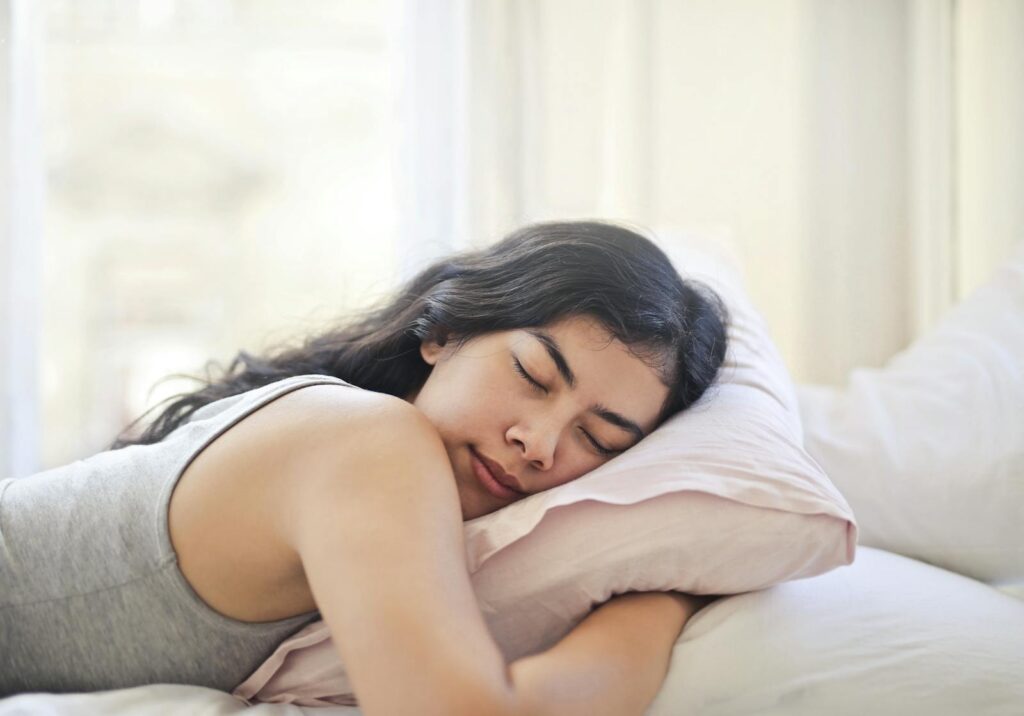
11. **Myth: You shouldn’t wake up during the night.**Picture this: you wake up in the middle of the night, glance at the clock, and immediately start stressing about why you’re not still fast asleep. Sound familiar? Well, here’s some comforting news: don’t stress about it! It’s actually totally normal to wake up during the night. In fact, scientists even believe that our ancestors developed this habit to check for predators and ensure safety in their caves! How’s that for a historical wake-up call?
Think of your sleep as a journey through different cycles, not one long, uninterrupted snooze-fest. During the first part of the night, you’re likely getting more of that super important deep sleep, while the early hours of the morning tend to be packed with more REM sleep. Because our bodies naturally transition between these deep and light sleep cycles, it’s pretty common for us to briefly stir and wake up. It’s just your brain doing its thing!
So, instead of fixating on whether or not you woke up, try shifting your focus. The real key to amazing sleep lies in the quality of your rest and how you feel when you finally greet the morning. If you wake up feeling genuinely refreshed and ready to go, then you’re probably getting the slumber you need, even if your night wasn’t entirely uninterrupted. Embrace the natural ebb and flow of your sleep cycles, and unlock your best slumber yet!
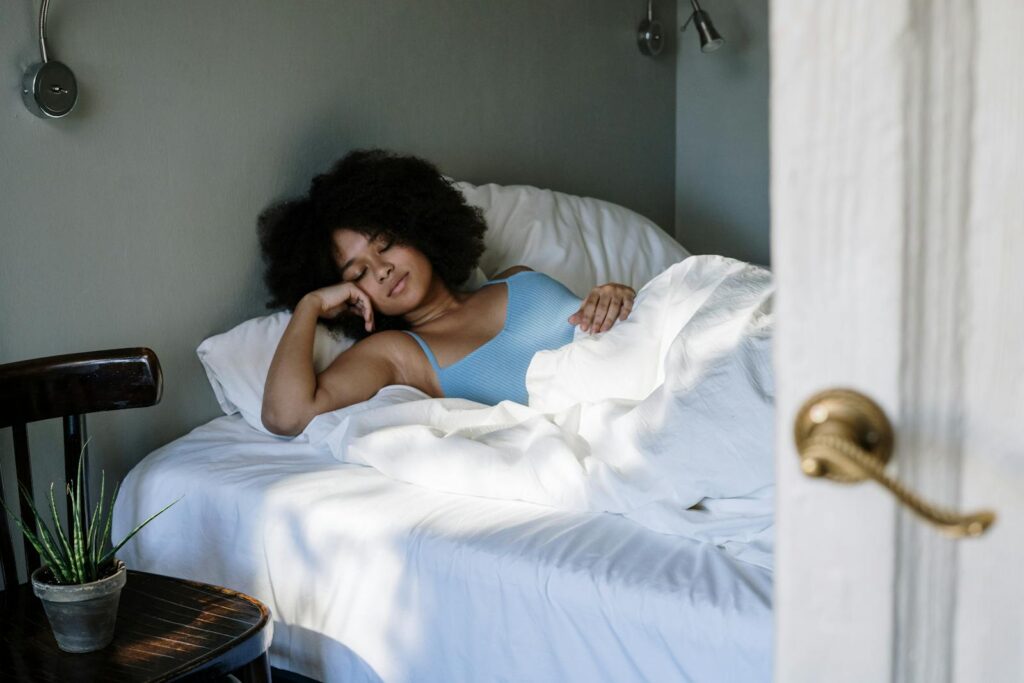
12. **Myth: The brain isn’t active at night.**Ah, the allure of ‘powering down’ for the day. We often think of sleep as hitting the off switch for our brains, a time when our minds simply go quiet. But if you believe your brain just sits there doing nothing while you’re catching Zs, then you’ve fallen for a major myth! The truth is, your brain is anything but inactive during the night.
“The idea that the brain ‘shuts off’ during sleep is a myth – it remains highly active, engaging in essential functions that support memory, learning, and overall health,” explains psychotherapist Heather Darwell-Smith. She even adds a fantastic quote: “In fact, it has been said that ‘sleep is by the brain, for the brain’.” Your brain isn’t just chilling; it’s doing some serious heavy lifting!
Think of it as your brain’s nightly clean-up crew and memory consolidator. For example, during Slow-Wave Sleep (SWS), which is your deep sleep phase, your brain is busy with restoration. It’s actively “clear[ing] out metabolic waste, including beta-amyloid, a protein linked to Alzheimer’s disease.” This crucial phase is also vital for cell repair, immune function, and getting your body ready for another day. So, next time you’re tucked in, remember your brain is hard at work, making you smarter and healthier!
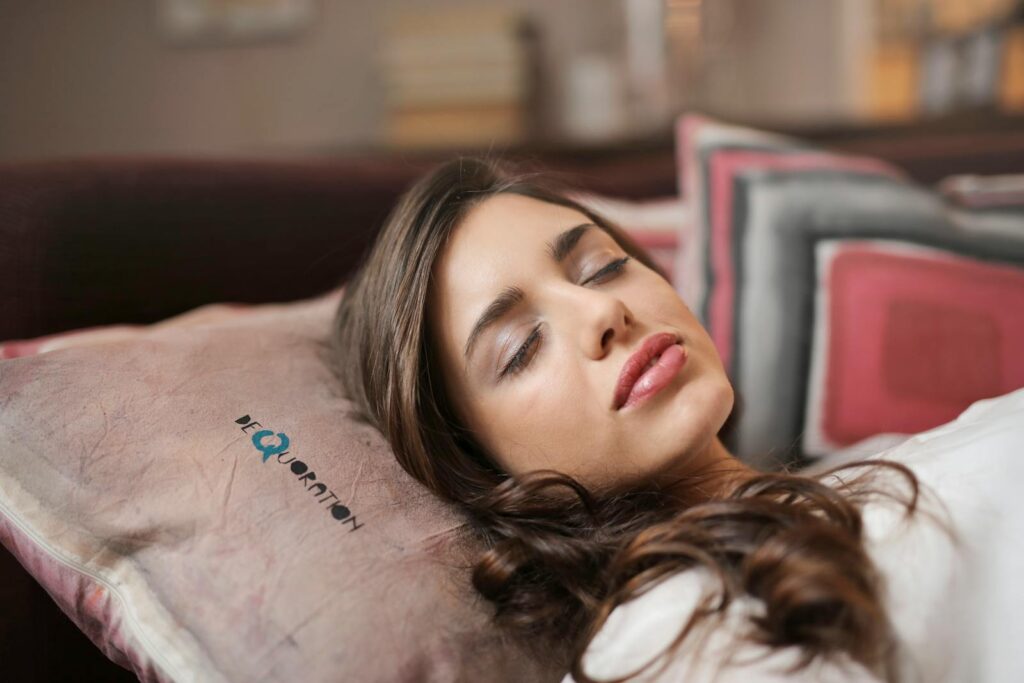
13. **Myth: Cheese gives you nightmares.**How many times have you heard someone blame a spooky dream on that late-night slice of cheddar? It’s an old wives’ tale that’s been around forever, but Maryanne Taylor is here to slice through the fiction: “There’s no solid evidence to suggest that eating cheese before bed directly leads to bad dreams.” So, go ahead and enjoy your cheese, but maybe keep reading for the full picture!
While cheese itself isn’t the direct culprit for monstrous dreams, it’s not entirely off the hook either. Taylor explains that “cheese is high in fat and protein, which takes longer to digest.” So, chowing down on a big chunk of it—or any other rich, fatty, or spicy foods—right before bed can potentially “lead to digestive discomfort which can disrupt sleep.” And that, my friends, is where the plot thickens!
When your sleep gets fragmented because your tummy is working overtime, it can actually lead to “more vivid or memorable dreams,” which some folks might then interpret as nightmares. So, while cheese won’t magically conjure up a nightmare, a heavy, rich meal *could* lead to a less peaceful night. Taylor advises, “if you find eating a heavy, rich meal before bed gives you vivid dreams, it may be better to eat earlier in the evening or opt for a lighter meal before bed.” Your dreams (and your stomach) will thank you!

14. **Myth: A plush mattress is the best kind.**Who doesn’t love the idea of sinking into a cloud-like mattress after a long day? It sounds like the ultimate recipe for blissful sleep, right? Well, brace yourself for a mattress myth bust: that super plush, soft mattress you dream of might not actually be your ticket to a good night’s kip, and it could even be causing you discomfort!
Here’s the thing: a mattress that’s too soft can actually let your body sink in a little *too* much. This can lead to less-than-ideal spinal alignment, which then translates to restless sleep and aches in the morning. Nobody wants that! Even more concerning, if you happen to suffer from sleep apnea, a plush mattress can actually make your condition worse by causing your airway to close further. Definitely not what you want from your bed!
So, how do you find your perfect sleep surface? Forget the “plushest is best” mentality and consider what truly supports *your* body. Your ideal mattress should match your body type and your preferred sleeping position. If you’re a back or stomach sleeper with an average weight, you’re likely going to need a medium-firm to firm mattress to keep that spine aligned. But if you’re a side sleeper, a slightly softer mattress might be just right to cushion your pressure points. It’s all about finding *your* personal sweet spot!
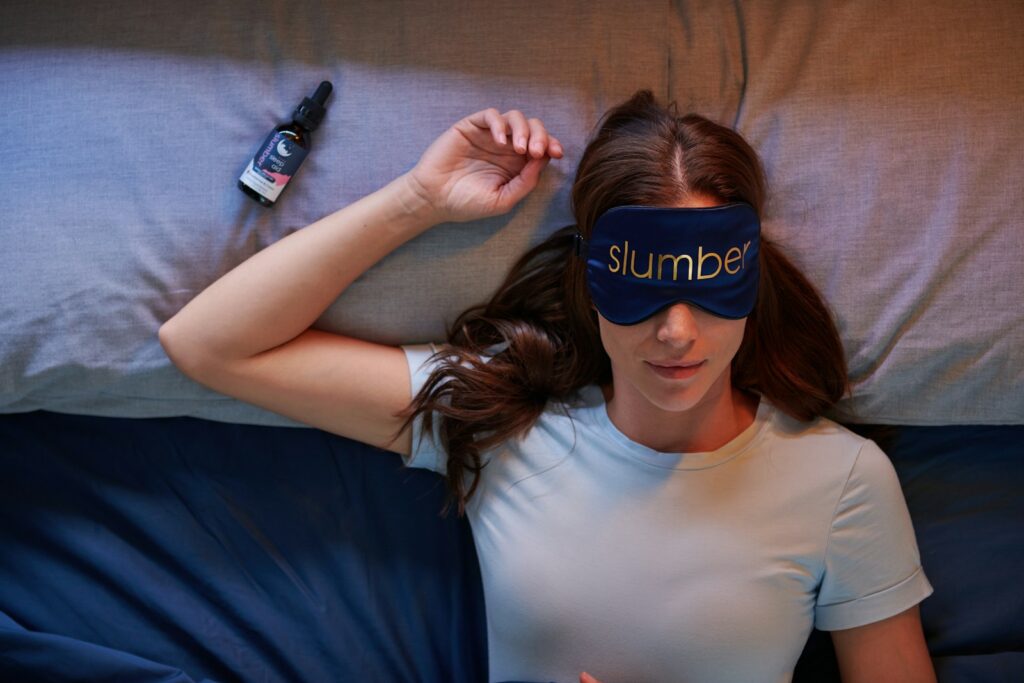
15. **Myth: The More Sleep the Better.**Ever woke up from a super long snooze, expecting to feel like a superhero, only to feel groggier than ever? It’s a common misconception that simply piling on more hours of sleep is always the answer to better rest. While sleep is crucial, and it’s tempting to think that “the more, the merrier” applies to those precious Zs, science actually points to a sweet spot!
Our handy smartwatches and fitness trackers are great at logging sleep duration, showing us how much time we spend in each sleep stage. But here’s the kicker: while seven to nine hours is the generally recommended range for most adults, just because you *can* sleep for ten or eleven hours doesn’t mean it’s necessarily optimizing your health. In fact, consistently oversleeping can sometimes be a sign of underlying issues, much like chronic undersleeping.
The real goal isn’t just about the sheer quantity of sleep, but the quality of that sleep and how it makes you feel throughout your day. Are you waking up refreshed and energized, or dragging yourself out of bed even after a marathon sleep session? Listening to your body, maintaining a consistent sleep schedule (yes, even on weekends!), and ensuring those 7-9 hours are *quality* hours, is far more beneficial than simply trying to get “more” sleep.
***
And there you have it, folks! We’ve journeyed through 15 incredible sleep myths, peeling back the layers of misinformation to reveal the science-backed truths. From debunking the myth that a warm bedroom is best to understanding that your brain is anything but ‘off’ at night, and realizing that more sleep isn’t always better, you’re now armed with the knowledge to revolutionize your sleep habits. So go forth, embrace these insights, and start building the foundation for truly restorative, health-boosting sleep. Sweet dreams, everyone!


